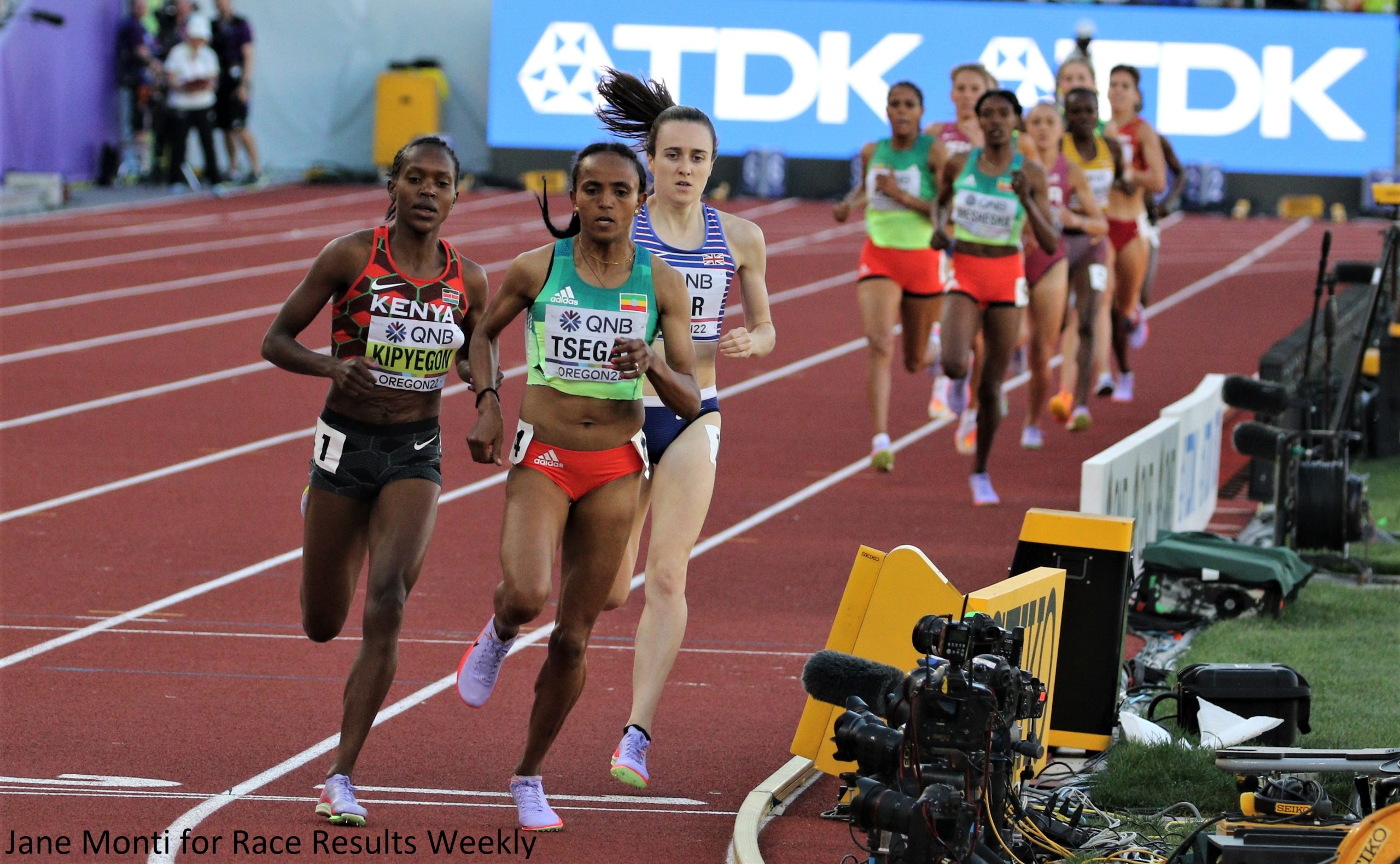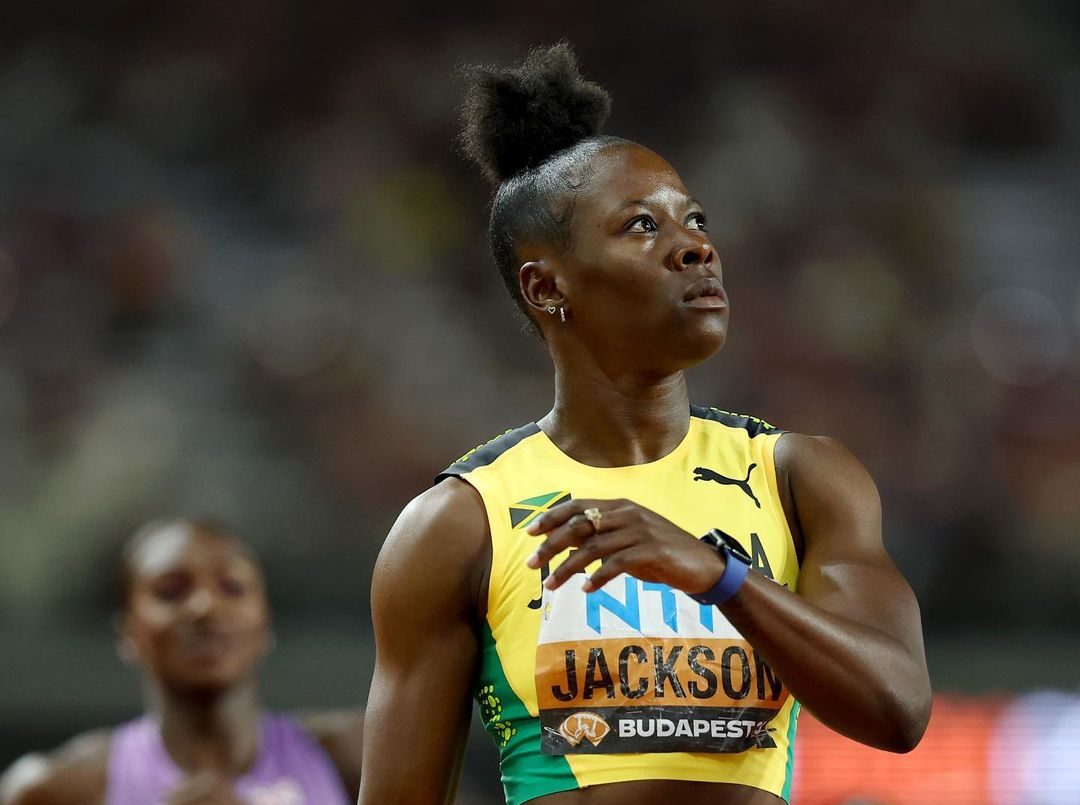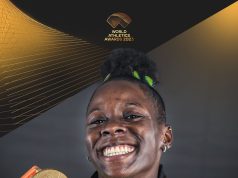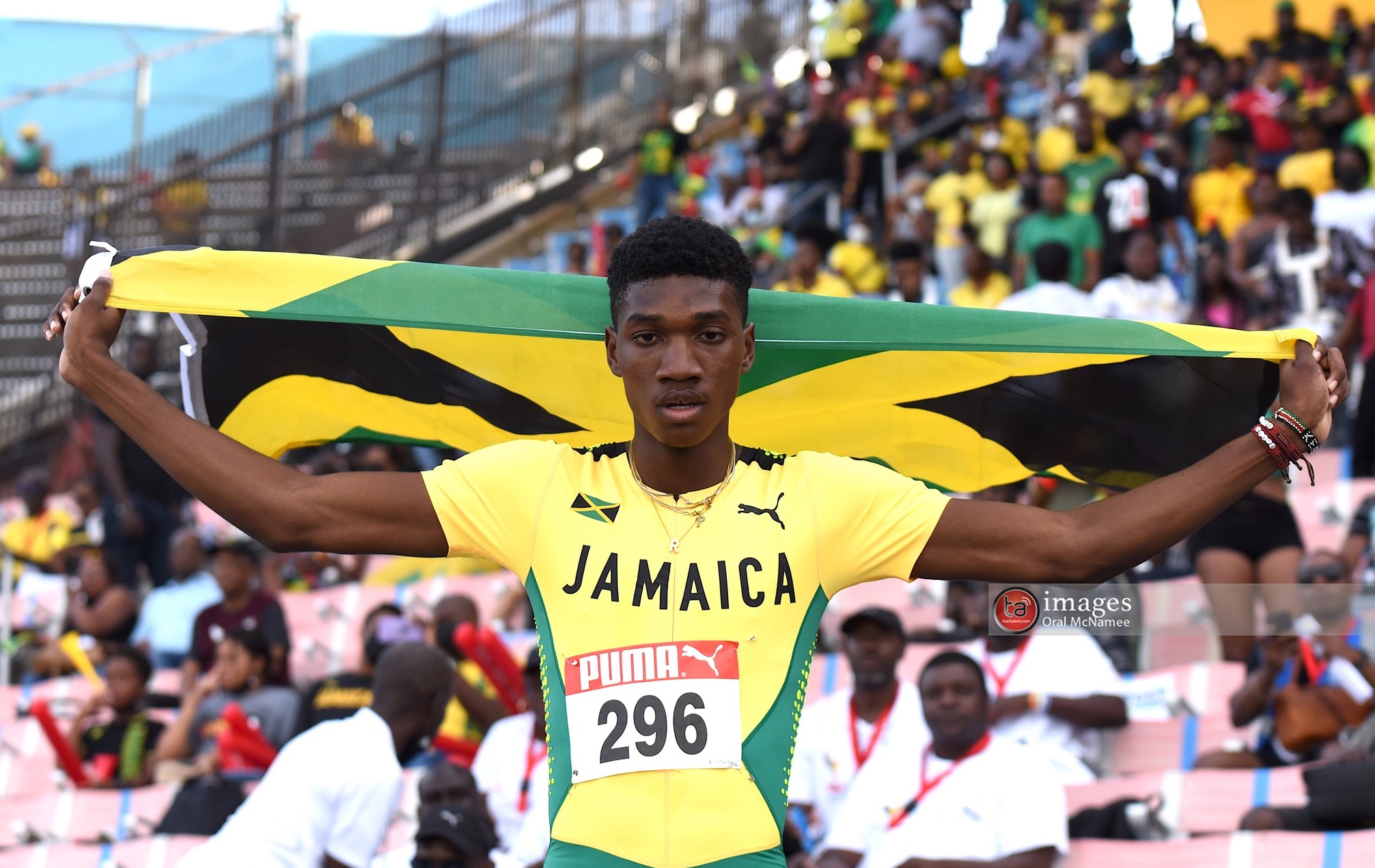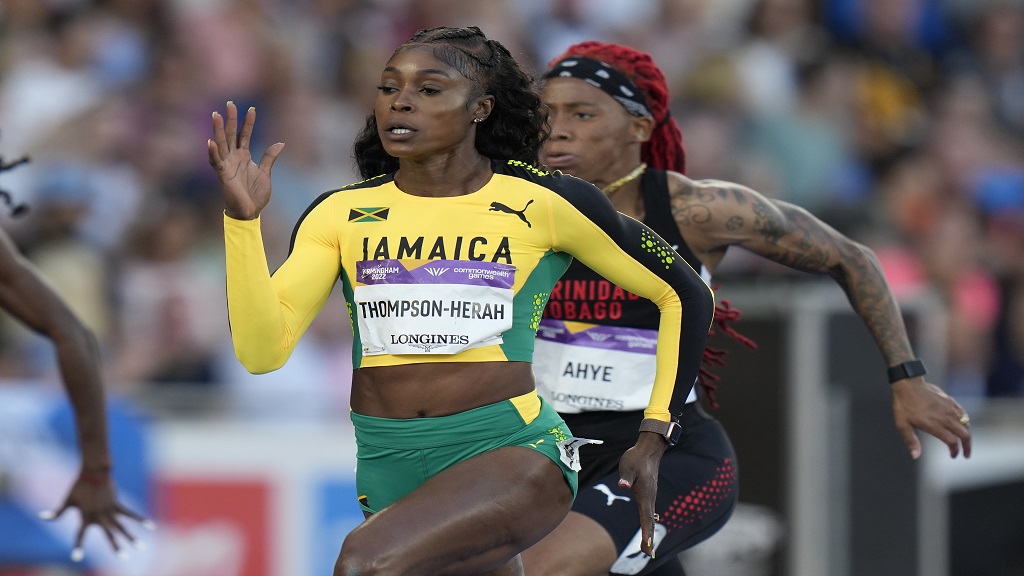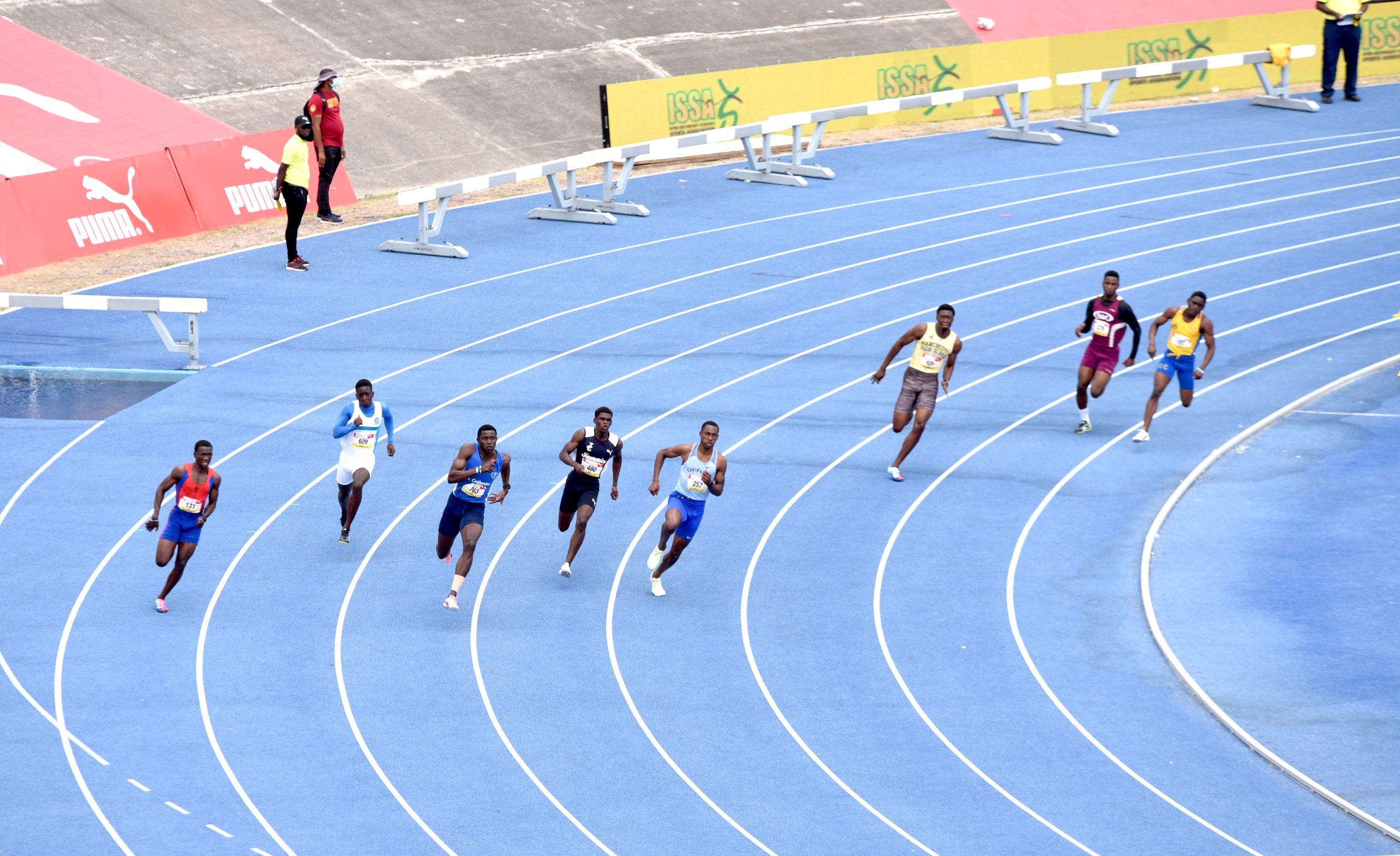By David Monti, @d9monti
(c) 2022 Race Results Weekly, all rights reserved, with permission to use
EUGENE (18-Jul) — Double Olympic 1500m champion Faith Kipyegon of Kenya streaked to her second World Athletics Championships 1500m title here Monday night at Hayward Field beating back a furious first-lap assault by Ethiopia’s Gudaf Tsegay and running the second-fastest time ever at a World Athletics Championships: 3:52.96.
- Allyson Felix hails Jamaica’s 100m sweep – Oregon22
- Ricketts leaps to triple jump silver – Oregon22
- Fraser-Pryce to face Steiner, Thompson-Herah vs Asher-Smith – women’s 200m semis start list
Kipyegon, 28, moved up from her second place finish in Doha in 2019 when she was handily beaten by Dutchwoman Sifan Hassan.
Tsegay, who won the silver medal tonight in 3:54.52, scorched through the first 400 meters in 58.9 seconds which immediately split the race in two. Only her 21 year-old teammate, Hirut Meshesha, and 2021 Olympic silver medalist Laura Muir of Great Britain were brave enough to follow. Kipyegon was not fazed by Tsegay’s tactics.
“Actually, I was expecting that,” Kipyegon told Race Results Weekly. “I knew she’s a front-runner. So, it’s not something scary for me, but I was looking forward to a fast race here in Oregon.”
Kipyegon briefly took the lead 700 meters into the race, but Tsegay went in front again, splitting 800m in 2:03.2 seconds. The Kenyan continued to follow her Ethiopian rival right to the bell and was happy with the way the race was going.
“I knew what I was going to do, just enjoy the race, just enjoy following that lady because I knew she’s very fast,” Kipyegon continued. “She doesn’t like staying at the back; she likes staying in the front.”
On the backstretch of the final circuit, Kipyegon finally showed her cards and she wasn’t bluffing. She powered away from Tsegay to win by more than a second and a half.
“I knew I’m not a front runner, but I’m going to follow her and I won,” she said.
Muir, 29, decided to ignore the clock and just run from the gut. She was hurting, but was determined to get a medal.
“I didn’t realize what the splits were,” she told reporters. “I knew after the first couple of hundred meters that, OK, this is going to be fast.” She continued: “I’m just going to race it and not think about times, just stay in contention as long as possible, just hope that would be enough to cross the finish line in a medal position.”
Indeed, it was. The searing pace had sent the young Meshesha all the way back to 12th place by the finish, and nobody was close enough to threaten Muir’s hold on third place. She finished in 3:55.28, the third-fastest time of her career, to bring home the bronze medal.
“I was definitely hurting when I crossed that line,” Muir said, breaking into a smile.
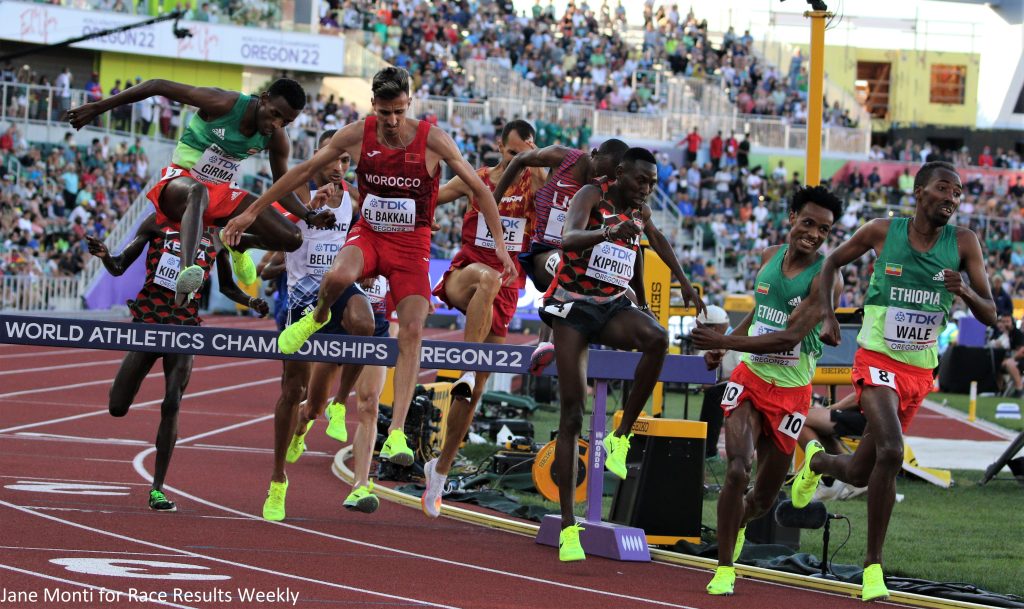
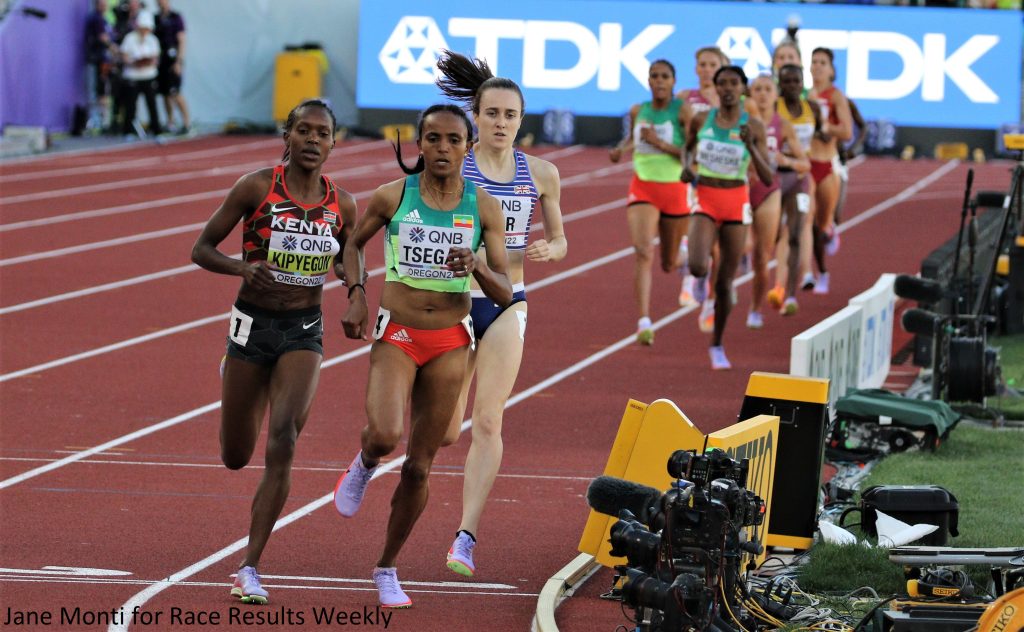
Sinclaire Johnson of the USA and Jessica Hull of Australia finished sixth and seventh in 4:01.63 and 4:01.82, respectively. The two athletes train together under coach Pete Julian at the Nike Union Athletics Club in nearby Portland. Johnson was running in her first World Athletics Championships (Hull in her second) and the 24 year-old knew the early pace was going to be hot, but not that hot.
“I wish I would have had the guts to go with it,” she told Race Results Weekly with a laugh, “but I fought hard out there today. “I honestly don’t think I could have done anything differently.”
The men’s steeplechase final was anything but fast. In windy conditions, nobody in the field had an interest in pushing the pace, and the first kilometer went out in only 2:57.4.
“I’ve never been in that kind of steeple,” said reigning USA champion Hillary Bor who finished eighth. He added: “Nobody expected this. It was a real surprise.”
In the very first lap, the 15 starters had to avoid a wayward television camera operator who had been shooting the women’s triple jump and wandered into the track. Thankfully, nobody ran into him, but the pace was just deathly slow. Evan Jager, the 2016 Olympic silver medalist, didn’t like how the race was playing out.
“I probably would have fared better in a faster race, which I thought it could have been, but the wind was just crazy today,” Jager told reporters. “The race was even slower than I thought it would be which doesn’t really play to my strengths.”
Spain’s Sebastian Martos led the first two laps before Ethiopia’s Lamecha Girma took over. With four laps to go, Girma had Bor, Kenya’s Conseslus Kipruto, France’s Mehdi Belhadj, Jager, and Ethiopia’s Getnet Wale close behind him. Reigning Olympic champion Soufiane El Bakkali was farther back.
There was a lot of bumping and pushing because of the continued slow pace, just 5:52.5 through 2000m, and that set up a frantic last lap which played perfectly into El Bakkali’s hands. The tall Moroccan was running third into the final water jump, but he shot out of the water pit to pass both Wale and Kipruto (the 2016 Olympic champion) and run away with the win in 8:25.13, the slowest winning time in championships history and the first gold medal for Morocco at a World Athletics Championships since Jaouad Gharib won the marathon in 2005.
Girma got second in 8:26.01 and Kipruto, who did not compete in the 2019 World Athletics Championships due to injury, got third in 8:27.92. The 27 year-old Kenyan was excited to meet El Bakkali again at the next World Athletics Championships in Budapest in 2023.
“I think, and I am very sure, next year I will be back I will fight with him and bring that gold home,” he said.
Jager, who spent the last four years overcoming injuries, finished sixth in 8:29.08. The 33 year-old appreciated the significance of his comeback, but had wanted more tonight. He said he had been training very well the last six weeks and could have run very well in a fast race.
“It’s been a long journey though,” he said. “After I have a few hours to kind of let the emotions wear off I’ll be very proud of myself, but I’m pretty disappointed now.”


